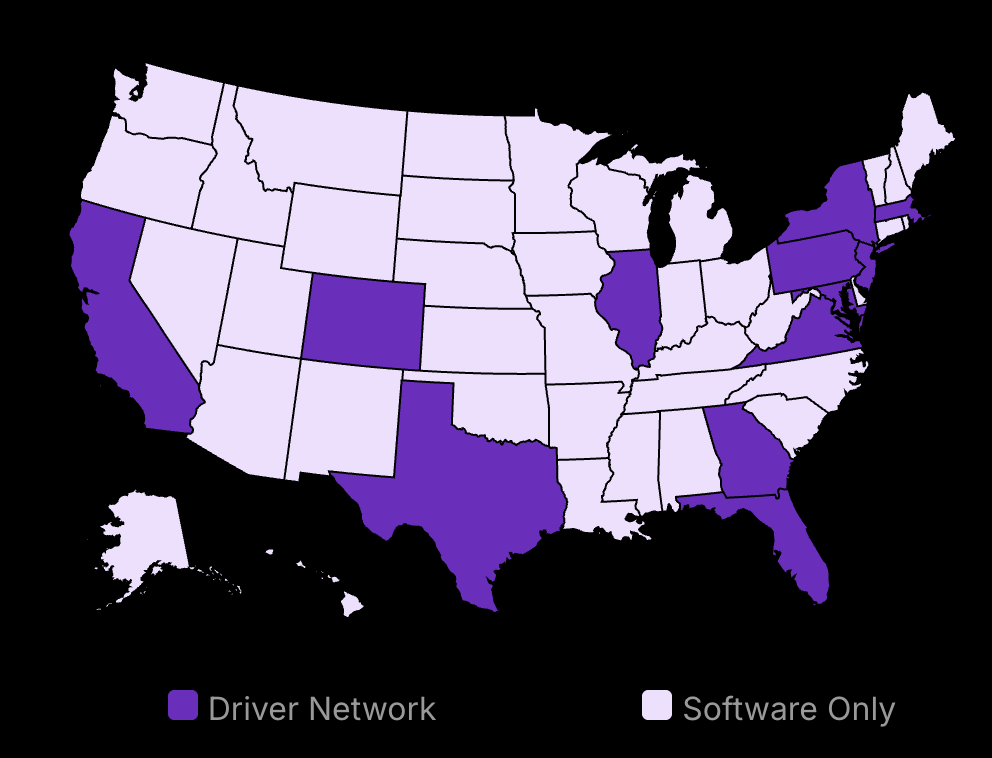You intend to start a food business, and you are looking for the best commissary kitchens for your startup.
If you do not know what to look for when you choosing a commissary kitchen, you are in the right place.
Below, you will find an essential guide to commissary kitchens.

27% higher customer satisfaction
Professional delivery features:
- Real-time GPS tracking
- Automated ETA updates
- Delivery confirmation photos
- 27% higher delivery satisfaction
What is a commissary kitchen?
You probably already know what a commissary kitchen is, but for beginners, we can define commissary kitchens as established commercial areas to rent, cook, and store your food. Essentially, these kitchen commissaries offer a viable alternative to building your own kitchen, simplifying the logistics of food preparation and storage for startups and established enterprises alike.
Most commissary kitchens are shared, which means you use a big kitchen with other clients to prepare your food. That’s why they are also known as shared kitchens. Shared kitchens are cheaper to rent. These kitchens, often referred to as kitchen commissaries, offer an economical approach for culinary entrepreneurs to access well-equipped spaces for their cooking ventures.
Some commissary kitchens provide private areas for their users so you can have control over the kitchen and equipment. However, private kitchens are more expensive. Considering the cost and control factors, deciding between a personal kitchen and utilizing spaces in shared commissary kitchens is critical for food business owners.
Now that you know what commissary kitchens are, we can come back to the subject.

Questions to ask when choosing a commissary kitchen
When it comes to business needs, the needs of each business in the food industry differ. For example, if you are running a bakery, you need large ovens, and you should look for commissary kitchens that can provide you with regularly maintained ones. Or, if you plan to give cooking classes, you need a larger space for multiple people to cook. Consider your current and future plans.
Afterward, you need to ask the following questions:
Does the commissary kitchen have a good inspection history?
You need to know if the commissary kitchen has had any problems with the health department. If the commissary kitchen was shut down in the past, this might cause a few issues for your business. For example, you may lose access to the kitchen all of a sudden. Or, it may harm your business and brand reputation if this is a notorious kitchen. Discover the pivotal steps in locating the right commissary kitchen, an essential manual for culinary entrepreneurs who prioritize long-term success and reputation.
Does the commissary kitchen have cleaning and disposal facilities?
You need to look for the cleaning and disposal facilities available in the commissary kitchen. Dumpsters and recycling facilities are one of the first things you need to check. You will need these facilities to dispose of your materials if you use oil or grease when you cook. After evaluating the cleanliness and disposal systems in the commissary kitchen, the next step is to strategize how your deliveries will be managed.
Does the commissary kitchen have flexible usage plans?
You may not need the commissary kitchen for a whole day. In such a case, renting it hourly may be a better option for your budget.
Does the commissary kitchen have enough space for your storage?
Most commissary kitchens already have the basic equipment you need. This is something you need to check in the first place. However, you may need a few more things in the kitchen. That’s why the commissary kitchen should provide you with enough space to store your equipment. Also, you may need this space to store your food or ingredients. So, checking the storage space is definitely for your benefit. Moreover, ensuring the commissary kitchen space meets your storage requirements enhances the overall efficiency of meal preparation and production.
Finally, if you are in the Boston area, you can check our best commissary kitchens in Boston series.
























